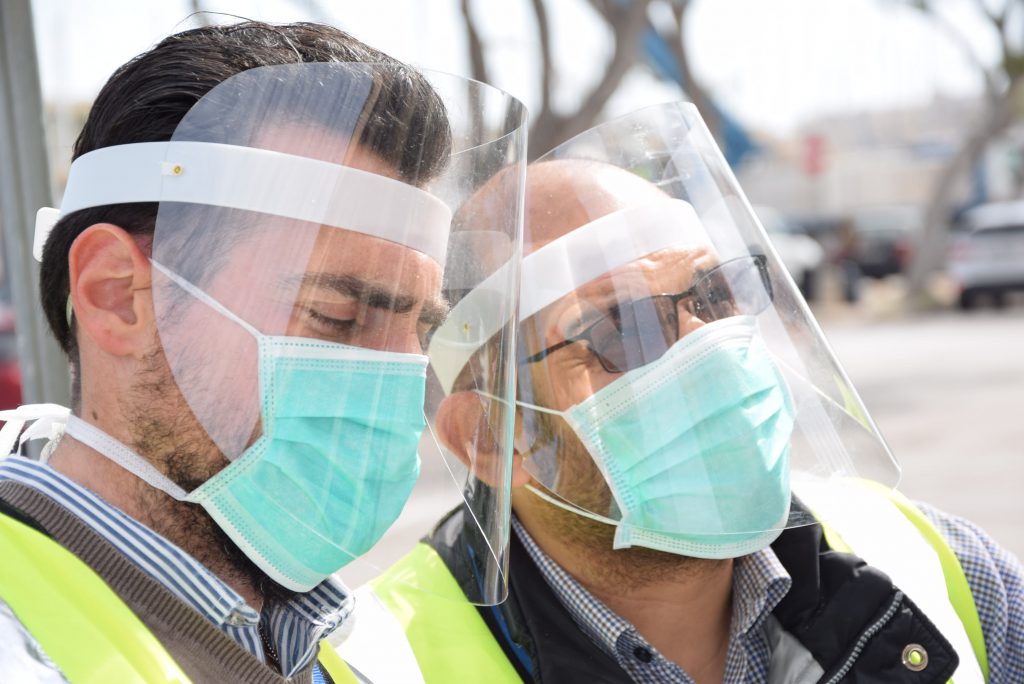Environmental Health Officers apprehensive on their future

Despite having a key role in safeguarding public health standards, environmental health officers are increasingly becoming apprehensive on their future, amid signs this sector is not being given the priority it deserves by the government.
“While we urgently need investment such as a fully-accredited laboratory in Malta, the efforts being made to beef up our inspectorate to be able to address the increasing workload and challenges ahead leave much to be desired,” environmental health officers told Voice of the Workers Weekly.
The section which numbers around 100 officers falls under the Superintendence for Public Health.
Officers are fearing that the inspectorate is gradually being dismantled as new duties outside their core responsibilities were being assigned, while neglecting more important operations.
Initially, their duties were extended to include school inspections on the healthy eating policy, and subsequently new responsibilities were assigned as a result of the Coordination of Government Inspections Act.
“Environmental Health Officers are being expected to take the lead when doing inspections, even on matters which are unrelated to their field of expertise such as employment conditions, occupational safety and the CE marking on toys. A single inspection which used to take 20 minutes, is taking hours to carry out as we have been given a very long checklist,” officers remarked.
Consequently, core responsibilities such as random inspections in catering and food establishments have been placed on the back burner. For the time being we only have time to handle urgent cases such as food-poisoning or complaints from the public.
Environmental Health Officers are also irked by a series of decisions which they fear will result in a brain drain while putting off any prospective recruits. These include forbidding them from doing part-time work, banning overtime to senior principles in Scale 6, and delays in the payment of overtime to those who are eligible. Another issue is the classification of these workers as “high risk” in the Public Administration Act as this precludes them from doing similar work in this field within the private sector, for up to two years, should they decided to seek greener pastures.
“The hazy future is taking its toll as the inspectorate is suffering from a brain drain while not enough being made to attract new blood,” they said.
Meanwhile, capital investment in new equipment has been scarce in recent years while the existing apparatus is no longer being calibrated on regular basis. Furthermore, at the moment there is no fully-accredited laboratory in Malta, meaning that samples have to be sent abroad for testing. Apart from delaying investigations this is also coming at an additional cost. Officers also complained that certain recruitment which had been promised years ago has not yet materialised.
With Covid-19 officers had to adapt to a new reality whereby they were tasked to handle mitigation measures such as quarantine and contact checks, adherence to protocols issued by the Superintendence of public health, checking of passenger documentation and adherence to all legal notices being issued.
Yet, the work of these front liners is not being given visibility within the public domain, even though officers came forward to produce promotional material themselves.
Though these issues have been flagged time ago with the health ministry, this has been to little or no avail.
“It seems the inspectorate is no longer a priority as our concerns are not being heeded.”
The sentiment was augmented further following the recent Cabinet reshuffle as it is still unclear whether the inspectorate falls under the health ministry or the agriculture and fisheries ministry.
“So far we are still waiting for an explanation in writing. We have no qualms about restructuring the inspectorate but all we are asking is to be consulted in case of drastic changes,” officers remarked.
The Malta Environmental Health Officers Association and UHM Voice of the Workers which represents it on industrial relations matters, are deeply concerned on the situation and will be seeking to hold talks with the authorities concerned to find a solution.
